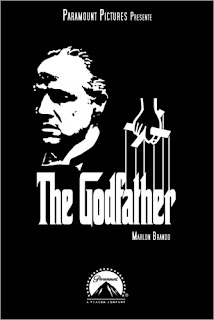Worked on major scores including The Godfather and Fellini’s Amarcord
.jpg) |
| Carlo Savina conducting in during his time working in TV and radio in the 1950s |
Savina was also a prolific film composer in his own right and is credited with writing or arranging the scores of at least 200 movies in a career spanning more than 35 years.
He won a David di Donatello award for Best Music for the 1985 crime drama The Pizza Connection, directed by Damiano Damiani and starring Michele Placido, a version of which was released in the United States as The Sicilian Connection.
Yet Savina is more frequently remembered for his work with Rota on the multi-award winning soundtrack of the first film in Francis Ford Coppola’s The Godfather trilogy in 1972 and with Federico Fellini the following year on Amarcord, the maestro’s semi-autobiographical film about growing up in a village in the Fascist Italy of the 1930s. He worked with Fellini and Rota on many projects, including La Dolce Vita (1960), which remains their most famous collaboration.
Although the music in a film would always be attributed to the headline composer in the credits, the work done by the likes of Savina in matching their music to the scenes and in producing an edited version of the soundtrack for commercial release was invaluable.
Savina came from a musical family. His father was the first clarinet for the orchestra of the public radio broadcaster EIAR, based in their home city.
 |
| Savina, who played a wide range of instruments, is shown accompanying a vocal group on guitar |
Savina explored many avenues in music, for a while conducting small orchestras or playing soloists at dance halls in Turin.
His early classical compositions included sonatas for clarinet and violin and a quartet for wind instruments. Savina also wrote a small number of operas, one of which was performed at the Teatro dei Rozzi in Siena.
Immediately after the Second World War, he wrote music and songs for the popular market. In the 1950s, he began to acquire national fame through his work with the national broadcaster Rai, who entrusted him with the direction of a large string orchestra. He had a prominent role in the musical direction on the experimental programmes made for Rai’s early television output in 1953.
Savina was in his 30s before the film industry began to be his focus. His relationship with some of the world’s most famous film music composers began at the outset, when he composed the music to Carlo Borghesio’s 1950 comedy Il monello della strada (The Street Brat) in partnership with Rota.
 |
| Savina worked with Nino Rota on The Godfather and other titles |
It was his relationship with Rota and Fellini that would prove the most enduring and successful, spanning almost 30 years until Rota’s death in 1979. Their last collaboration was on Fellini’s Orchestra Rehearsal, a 1978 film in which members of an orchestra go on strike against their conductor.
Savina, who wrote under various pseudonyms in his career, including Herbert Buckman, Charles Hanger and James Munshin, died in Rome in 2002 at the age of 82.
After his death, the Centro Sperimentale di Cinematografia, Rome’s historic film school, established the Premio Carlo Savina as an annual prize for composers of film music. Winners include Morricone, Davide Cavuti and Franco Piersanti, who among other things wrote the music for the TV series based on Andrea Camilleri’s Inspector Montalbano novels.
Travel tip:
Elegant streets and a vibrant café
culture are a feature of Turin
Turin, the capital city of the region of Piedmont, where Carlo Savina was born and grew up, has some fine architecture that illustrates its rich history as the home of the Savoy Kings of Italy. Piazza Castello, with the royal palace, royal library and Palazzo Madama, which used to house the Italian senate, is at the heart of ‘royal’ Turin. An elegant, stylish and sophisticated city, Turin has much to commend it, from its many historic cafés to 12 miles of arcaded streets and some of the finest restaurants in Piedmont. In the 19th century, the city’s cafés were popular with writers, artists, philosophers, musicians and politicians among others, who would meet to discuss the affairs of the day. The city’s duomo, the Cattedrale di San Giovanni Battista, as it is also known, was built between 1491 and 1498 in Piazza San Giovanni in Turin, on the site of an old Roman theatre.
Travel tip:.jpg)
The Centro Sperimentale di Cinematogrofia
in Rome was established in the 1930s
The Centro Sperimentale di Cinematografia has its headquarters in Via Tuscolana in Rome, was established at the time when the city became the hub of the Italian film industry because of the nearby Cinecittà, a large studio complex to the south of the city, built during the Fascist era under the personal direction of Benito Mussolini and his son, Vittorio. The studios were bombed by the Allies in the Second World War but were rebuilt and used again in the 1950s for large productions, such as Ben-Hur, the 1959 epic starring Charlton Heston, the acclaimed soundtrack of which saw Carlo Savina work with the Hungarian-American composer Miklós Rózsa. These days a range of productions, from television drama to music videos, are filmed there and Cinecittà has its own dedicated Metro stop.
Also on this day:
1854: The birth of author Francis Marion Crawford
1945: The death of composer Pietro Mascagni
1980: The bombing of Bologna railway station